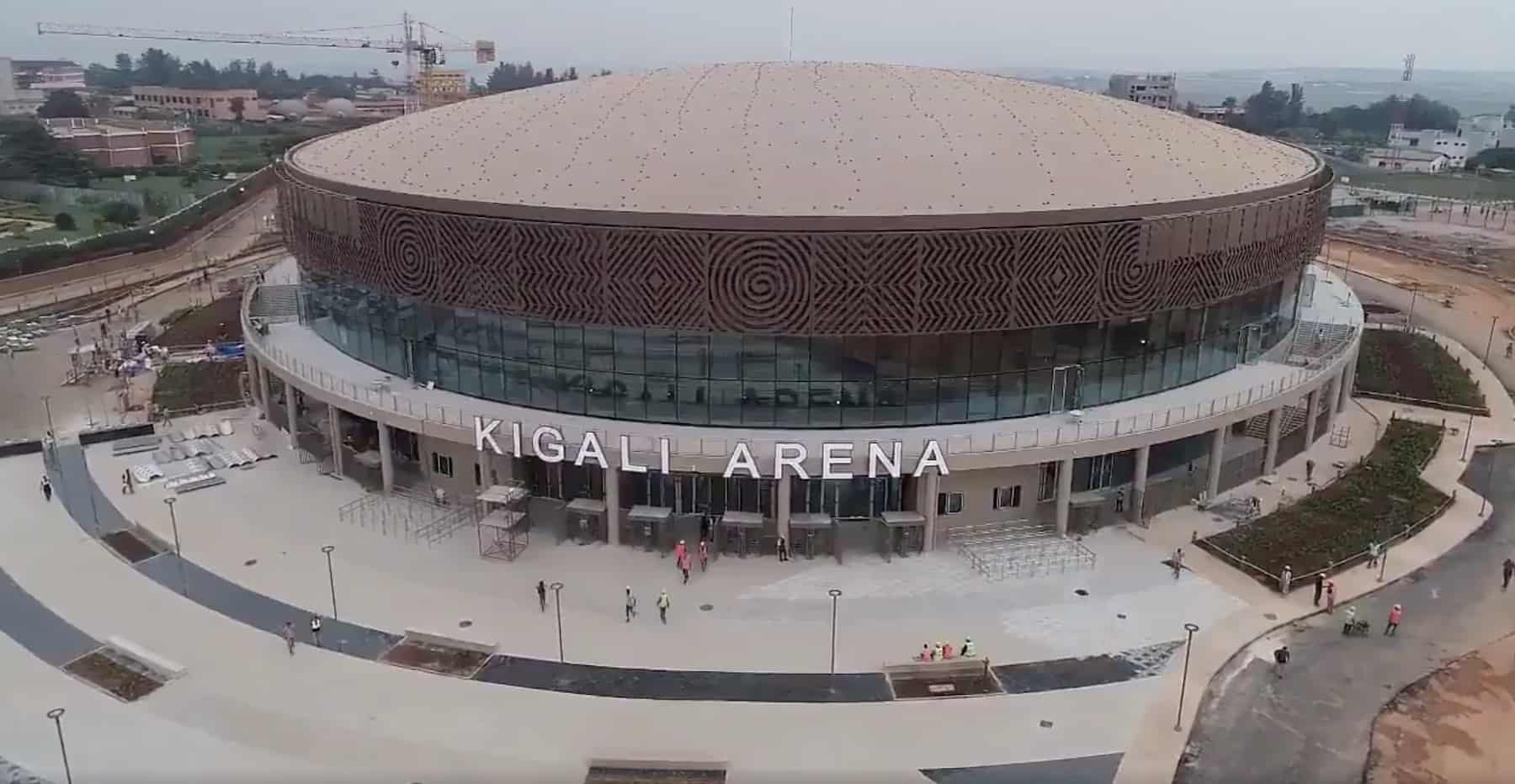The Kigali Arena in Rwanda is an indoor sports hub in East Africa. It is the crème de la crème for holding indoor activities including concerts, festivals and other indoor events.
France President Emmanuel Macron flanked by Rwandan President Paul Kagame on May 27 were at the arena for the Basketball Africa League (BAL). BAL kicked off days ago bringing to play 12 renowned basketball teams from Africa for BAL inaugural season.

France President Emmanuel Macron with Rwanda’s President Paul Kagame. [Photo: Paul Kagame]
Also read: 9 Cultural Dishes That Welcome You To Kigali
A Turkish firm – Summa – worked with RHA in executing the mega project that goes down in the annals of Rwandan history as one of the biggest projects to be executed in a short while. There were between 1,000 and 2,000 construction workers on site. By June 2019, 70% of the construction was done. 1,068 Rwandan and 541 Turkish workers involved in the building of the site.
It cost $104 million to put up the arena through a Public-private partnership (PPP) involving the Rwanda Housing Authority, the Ministry of Sport and Culture and the Turkish firm SUMMA
When President Kagame opened the arena amid pomp and colour, the first basketball game that would mark the start of man others was played. It pitted Patriots BBC against their REG BBC rivals. The same year, Kigali Arena hosted the 2019 FIBA Under-16 Women’s African Championship as well as the finals of 2019 Rwandan National Basketball League. Fast forward to 2021, Kigali Arena is hosting the inaugural edition of the Basketball Africa League (BAL).
Kigali Arena has a 10,000-seater capacity in its indoor arena. This means 10,000 people can watch a fiery basketball game, volleyball, tennis and handball. This arena also hosts other entertainment activities such as concerts and festivals. For business tourism, conferencing in the arena has the same capacity.
Kigali Arena has been crucial in cementing Rwanda’s culture by offering a platform where thousands witness and feel they are part of the Rwandan culture. The intent behind the building of the arena was to spur economic and sporting development in Rwanda.

Kigali Arena in Rwanda. [Photo: This is Africa]
This did not go as expected as the Covid-19 pandemic hit the country in March 2020 putting everything at a standstill. No games, no meetings were held for the better part of 2020 and it only opened its doors in 2021 when the pandemic seems to be slowly.
Also read: All About Rwanda’s Most Expensive Luxurious Lodge, Bisate Lodge
Before its construction, Remera was a sleepy place with the Amahoro Stadium with a mere 2,500 capacity. Initially, there were a few small bars and restaurants in the area. However, things changed a lot after the first six months of 2019 when Kigali Arena’s construction started. Better restaurants and bars came up and have since stayed put even after the construction.
Remera was a neighbourhood known for poverty back in the day. There no major economic activity going on here until the day the arena’s construction began. It grew in leaps and bounds as better accommodation was set up to house the over 500 Turkish personnel involved in the construction of the arena.
Today, Remera is a cosy neighbourhood and one of the fastest-growing in Rwanda. The real estate business is booming with nightlife also taking root here.








